
- Courtesy
- Top row: Esther Charlestin, Peter Duval, John S. Rodgers. Bottom row: Gregory M. Thayer, Thomas Renner, David Zuckerman
Information was provided by the candidates.
Democratic Candidates for Governor
The governor is Vermont's CEO, the head of its executive branch of government. The Vermont legislature passes bills; the governor decides whether to sign them into law. The roles are reversed when it comes to the state budget, which the governor drafts and the legislature approves. The governor also appoints agency leaders and issues executive orders and proclamations. Republican Phil Scott has held the job since 2017 and is running for reelection. Two candidates are vying for the Democratic nomination to challenge him in November.
Esther Charlestin
Middlebury
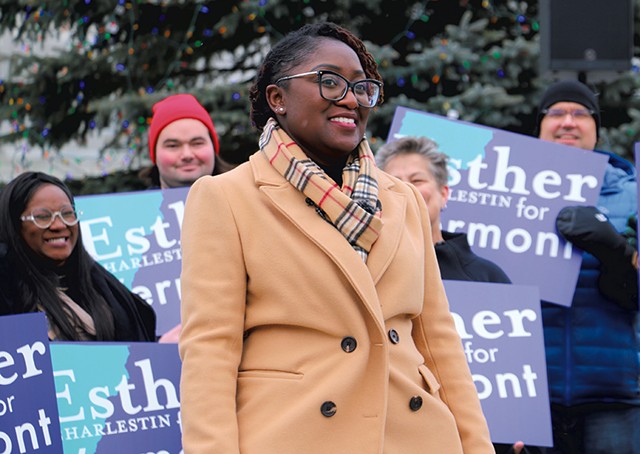
- Courtesy
- Esther Charlestin
Small business owner; cochair of the Vermont Commission on Women; previously served on the Middlebury Selectboard
Why are you running for the Democratic Party nomination?
The Democratic Party champions equality for all. Gov. Scott's vetoes highlight the need for collaborations. As governor, I will work with Democrats, Progressives, independents and Republicans to address Vermont's challenges, ensuring every voice is heard and all are invested in our solutions.
What are the most important issues facing Vermont today?
The most pressing issues facing Vermont today are tackling our affordable housing and livability crisis, building an education system that is both fully funded and sets our children and education workers up for success, and ensuring climate disaster mitigation and a just energy transition for the future.
Name three accomplishments that qualify you to address them.
As a selectboard member and member of various boards, I demonstrated my leadership skills and commitment to civic engagement and gained experience in governance, decision making and community building. My extensive education background equips me with a strong foundation in critical thinking, communication and education policy. Throughout my career, I have been driven by a commitment to justice and equity.
Briefly describe your approach to tax policy in Vermont.
Taxes can be crushing to some; much less so to others. My tax policy is to lower the education tax burden on lower- and middle-income Vermonters while exploring innovative funding models such as increasing taxes on second homes and short-term rentals to fund a better future for all of Vermont.
Peter Duval

- Courtesy
- Peter Duval
Underhill
Sailing instructor and substitute teacher; former Underhill Selectboard member
Why are you running for the Democratic Party nomination?
The blue team and red team play political ping-pong over minor differences while claiming to address housing, climate and "demographic crisis." I run to link such crises, offer an environmental perspective and, as a fusion candidate, be a change agent. It's a civic duty.
What are the most important issues facing Vermont today?
False battle lines are often drawn around issues. I am running on principles of ecology, ecological and Nordic model economics, and progressive social policy.
Name three accomplishments that qualify you to address them.
I successfully lobbied Vermont Electric Coop's board to reject the VJO/Hydro-Québec contract.
I helped Colchester voters realize that the Circumferential Highway — like ring roads everywhere — was a transportation failure by design.
A lone voice on U46's Facilities Committee, I helped U46 realize that Essex Tech Center should remain on the high school campus.
Briefly describe your approach to tax policy in Vermont.
All money is fungible, and taxes implement policy. Having "funds" for one thing or another and asking, "How are you going to pay for that?" piecemeal is silly. Vermont should overhaul its approach, resulting in a single formula that is adjusted to meet the total expenses of each budget cycle.
Candidates for Lieutenant Governor
The lieutenant governor presides over the Vermont Senate. The position is largely ceremonial — unless the governor is incapacitated or unable to serve. In that case, the LG takes over the top job. The LG also breaks tie votes in the Senate. The current LG, Democrat David Zuckerman, is facing a primary challenge from Thomas Renner. Two Republicans also hope to win the chance to represent their party in the November general election.
Republicans
John S. Rodgers
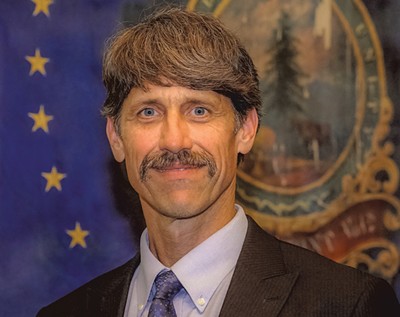
- Courtesy
- John S. Rodgers
Glover
Owner-operator of J.S. Rodgers Masonry, Vermont Farmers Hemp Company, Farmers Underground, Rodgers Rentals; former Democratic legislator
Why are you running for the Republican Party nomination?
I intend to use the lieutenant governor's office to advocate for the working-class people of Vermont, who have not had a voice in the Statehouse for years. I will advocate for legislation that helps working-class people and fight legislation that makes the cost of living in Vermont untenable.
What are the most important issues facing Vermont today?
The high cost of living in Vermont. We also need to do a better job training young Vermonters for the trades. Many tradespeople in Vermont are nearing retirement age, and there are not enough younger people getting into the trades to take their place.
Briefly describe your approach to tax policy in Vermont.
Taxes should be balanced so everyone pays their fair share. We need to be sure that we can provide services efficiently so as not to waste tax dollars, as Vermonters are already overtaxed.
If the governor is unable to perform his or her duties, you may have to step into that role. What qualifies you for that responsibility?
I spent 16 years in the legislature, eight in the House of Representatives and eight in the state Senate. I have also run small businesses since I was in my early twenties. I have the ability to work with people and the knowledge to oversee state government.
Gregory M. Thayer

- Courtesy
- Gregory M. Thayer
Rutland City
Accountant; former Rutland City alderman; member of various governmental boards and nonprofit boards
Why are you running for the Republican Party nomination?
I'm the only lifelong Republican running. To make Vermont affordable! I believe in the people. The current leadership negatively affects working Vermonters with their high tax/fee increases, excessive spending and overregulation. I will say no to their big government agenda and provide solutions to the created problems.
What are the most important issues facing Vermont today?
The policies of the current lieutenant governor and his party have made Vermont unaffordable. Cutting spending, taxes/fees and regulations to invest in making housing affordable; repealing the Global Warming Solutions Act and Home Heat Standards; getting the politics out of our schools; tackling Vermont's serious mental health problem.
Briefly describe your approach to tax policy in Vermont.
To make government more efficient and effective for the people. Lower taxes/fees and watch the floodgates of investment open. Repeal every tax in the Vermont Statutes and implement a consumption tax on gross sales in Vermont.
If the governor is unable to perform his or her duties, you may have to step into that role. What qualifies you for that responsibility?
It's about leadership. My experience in executive leadership positions in banking and accounting qualify me. The person running the government needs to learn from effectively run businesses, and I have that experience. It's about bringing in the right people with the right skills to solve the challenges we face.
Democrats
Thomas Renner
Winooski
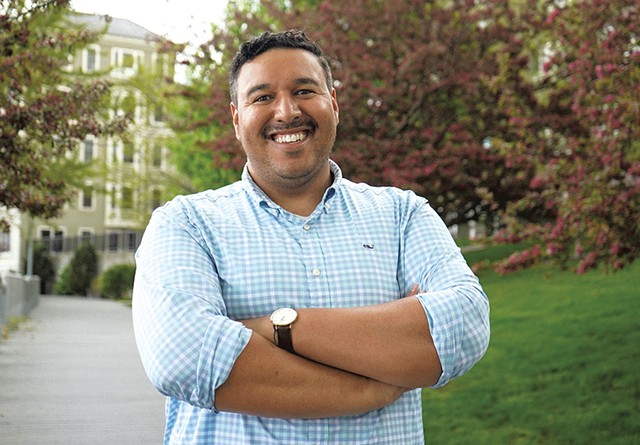
- Courtesy
- Thomas Renner
Outreach liaison for Congresswoman Becca Balint (D-Vt.), currently on leave from the position; deputy mayor of Winooski
Why are you running for the Democratic Party nomination?
I have been a Democrat my entire life; I have been involved in the local, county and state party. As a lifelong Democrat, I would not run in any other party's primary, nor will I switch parties or add other party affiliations after the primary.
What are the most important issues facing Vermont today?
As I travel the state, I hear the same things from Vermonters — affordability, housing, economic opportunity and climate change.
Briefly describe your approach to tax policy in Vermont.
As deputy mayor, I've prioritized keeping Winooski's tax rate as low as possible while providing the services that the community needs and deserves. To have safe roads, quality childcare and affordable housing, we need to raise taxes but do so while keeping in mind the economic stressors people are facing.
If the governor is unable to perform his or her duties, you may have to step into that role. What qualifies you for that responsibility?
Through working for senator Leahy and Congresswoman Balint, I have learned firsthand what it takes to lead; serving as deputy mayor I have worked on budgets, dealt with large infrastructure projects and, thanks to all three of those experiences, I have created good relationships in the Statehouse.
David Zuckerman
Hinesburg

- Courtesy
- David Zuckerman
Organic, regenerative farmer; business owner; incumbent lieutenant governor
Why are you running for the Democratic Party nomination?
We need bold, proven leadership in Montpelier. I have been in public service for 24 years, fighting to increase wages for Vermonters, building more affordable housing, tackling the climate crisis, expanding equal justice for all and pushing for a brighter future, full of opportunities for my daughter and her peers.
What are the most important issues facing Vermont today?
Vermonters are struggling right now; the climate crisis, a shortage of affordable housing and regressive property taxes are crushing people. Democracy is under siege. We need to double down to tackle these issues with conviction and determination.
Briefly describe your approach to tax policy in Vermont.
We have 40-plus years of tax policies that concentrate money in the hands of a few. We need an education system that does not penalize 70 percent of working Vermonters. By moving toward income-based taxes, we can save working Vermonters around $40 million on their property tax bills.
If the governor is unable to perform his or her duties, you may have to step into that role. What qualifies you for that responsibility?
I am a farmer and a public servant. I have been a leader on climate, economic and social justice my entire career, including championing raising wages, legalizing cannabis, GMO labeling, marriage equality and more. With more than 24 years in public service and six years presiding over the Senate, I'm ready.
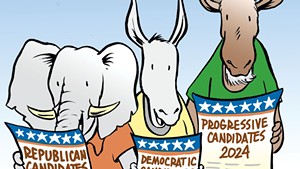








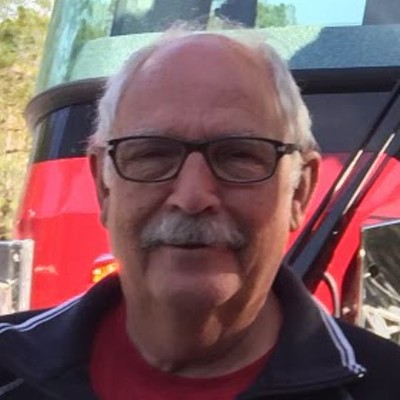

Comments
Comments are closed.
From 2014-2020, Seven Days allowed readers to comment on all stories posted on our website. While we've appreciated the suggestions and insights, right now Seven Days is prioritizing our core mission — producing high-quality, responsible local journalism — over moderating online debates between readers.
To criticize, correct or praise our reporting, please send us a letter to the editor or send us a tip. We’ll check it out and report the results.
Online comments may return when we have better tech tools for managing them. Thanks for reading.